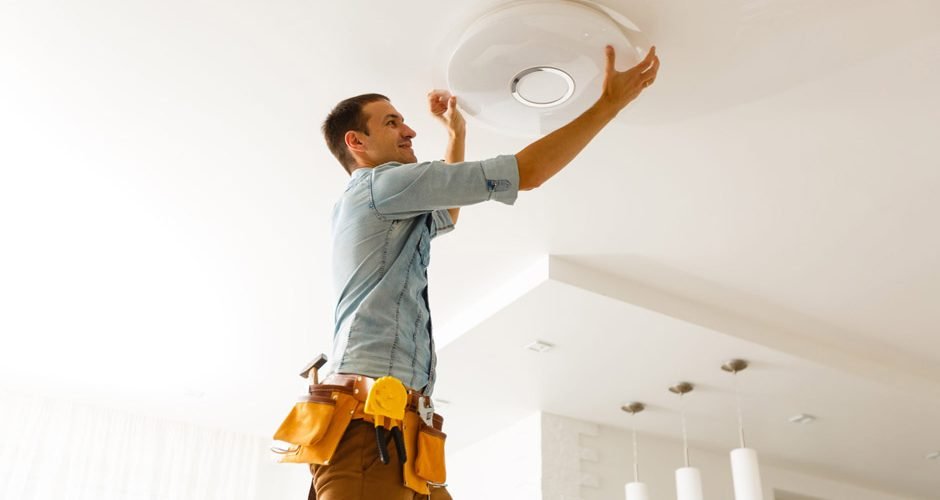Maintaining your home is a crucial aspect of homeownership that goes beyond mere aesthetics. It’s about ensuring the safety, efficiency, and longevity of your living space. Regular home maintenance can prevent small issues from escalating into costly repairs, safeguarding your investment and providing a secure environment for you and your family. From the stability of the foundation to the functionality of your electrical systems, every component of your home plays a vital role in creating a safe and comfortable living space.
Your home is more than just a structure; it’s a space where memories are made and life unfolds. Keeping it in top condition enhances its value and contributes to your overall well-being. Regular checks and upkeep of various home systems, such as plumbing, heating, and cooling, can improve energy efficiency and reduce utility bills. By dedicating time to routine maintenance, you ensure that your home remains a reliable and welcoming haven for years to come.
Table of Contents
Inspecting Your Home’s Electrical System
Ensuring the safety of your home’s electrical system is a critical task that demands your attention. Electrical issues are not always apparent, making regular inspections a necessity to prevent potential hazards. Start by examining your home’s wiring, outlets, and electrical panels. Look for signs of wear and tear, such as frayed wires or loose connections. These can be early indicators of bigger problems. It’s also wise to test your circuit breakers periodically to ensure they are functioning correctly, as they play a crucial role in preventing electrical overloads.
Your home’s outlets require special attention, especially in areas where water is present, like kitchens and bathrooms. Ensure that these outlets are equipped with Ground Fault Circuit Interrupters (GFCIs) to protect against electrical shock. Testing these GFCIs monthly is a simple yet effective way to maintain your home’s electrical safety. Additionally, be mindful of the placement of cords and plugs. Avoid overloading outlets and using extension cords as permanent solutions, as this can lead to overheating and potentially, electrical fires.
Lastly, consider the age of your home and its electrical system. Older homes may not be equipped to handle the electrical load of modern appliances and devices. If your home is several decades old, it might be time to consult a professional electrician for an in-depth evaluation. Upgrading your electrical system can improve safety and enhance your home’s functionality to meet your current electrical needs. Regular maintenance and timely upgrades to your electrical system are key to ensuring a safe and comfortable home environment.
Ensuring Your Drains and Sewers are Clog-Free
Maintaining the plumbing in your home is a crucial aspect of overall home care, particularly when it comes to your drains and sewers. Regular checks can prevent the inconvenience and potential damage caused by clogs and blockages. Start by being mindful of what goes down your drains. Simple habits, like avoiding pouring grease down the kitchen sink and not flushing non-degradable items in toilets, can significantly reduce the risk of clogs. Additionally, routine cleaning of drain stoppers and using strainers in kitchen sinks can catch debris that might otherwise lead to blockages.
Despite your best efforts, some clog issues can be challenging to prevent, especially in older homes or those with extensive plumbing systems. Signs of deeper problems include slow-draining sinks, gurgling noises from toilets, and water backing up in showers or basins. These symptoms indicate it’s time for a more thorough inspection and possibly professional intervention. For these situations, it’s wise to seek expert assistance to ensure a comprehensive and safe resolution.
When faced with stubborn or recurrent clogs, professional help becomes necessary. In such cases, you can look to repair clogged drains and sewers with the expertise of skilled technicians. They have the tools and knowledge to diagnose and resolve issues that go beyond surface-level blockages. Regular maintenance, combined with professional support when needed, ensures your home’s plumbing system functions efficiently, safeguarding your home against the inconvenience and potential damage caused by plumbing issues.
Ensuring an Efficient HVAC System
Your home’s Heating, Ventilation, and Air Conditioning (HVAC) system plays a pivotal role in ensuring your comfort throughout the year. Regular maintenance of your HVAC system enhances its efficiency and extends its lifespan. Start by regularly replacing or cleaning air filters, ideally every few months. This simple step can significantly improve air quality in your home and prevent your system from overworking, which in turn reduces energy costs.
Seasonal checks are also vital for your HVAC system’s health. Before the onset of winter and summer, have a professional inspect and service your unit. They can identify issues like leaks, mechanical wear and tear, or electrical problems that might not be obvious to the untrained eye. These inspections can prevent breakdowns during extreme weather when you rely on your system the most. Additionally, ensure that your home’s vents and air ducts are clean and unobstructed. This not only aids in efficient heating and cooling but also reduces the circulation of dust and allergens.
Consider the age of your HVAC system. If your system is over a decade old, it may be time to think about an upgrade. Modern HVAC systems are more energy-efficient and can significantly reduce your utility bills while providing better temperature control. Investing in a new system can be a cost-effective decision in the long run, considering the savings on repair costs and energy bills. Regular maintenance combined with timely upgrades ensures your HVAC system keeps your home comfortable and energy-efficient year-round.
Preventing Structural Damage
The foundation of your home is its structural bedrock, and maintaining its integrity is crucial for the overall stability and safety of your dwelling. Regular inspections of your foundation can prevent minor issues from escalating into major structural problems. Start by examining the exterior of your home for cracks or shifts in the foundation. Even small cracks can be early indicators of stress or settling and should not be ignored. Look for signs of moisture or water damage, as these can weaken the foundation over time.
Inside your home, pay attention to doors and windows. If they begin to jam or fail to close properly, this could be a sign of shifting in the building’s structure. Similarly, cracks in walls, especially over doorways, windows, or where walls meet ceilings, can signal foundation issues. Uneven floors or sagging should also raise a red flag. These signs can indicate that your foundation is moving and needs professional assessment.
If you notice any of these warning signs, it’s important to consult with a structural engineer or foundation repair specialist. They can provide a thorough evaluation and recommend appropriate solutions. Addressing foundation issues early can save you from costly and extensive repairs in the future. Regular monitoring and maintenance of your home’s foundation are key to ensuring the longevity and safety of your property, giving you peace of mind that your home remains a secure and stable environment for you and your family.
Maintaining your home is an ongoing commitment that rewards you with safety, efficiency, and comfort. By adhering to the checklist provided, you ensure that every aspect of your home, from the electrical systems to the foundation, functions optimally. Regular maintenance not only prevents unexpected breakdowns but also contributes to the overall longevity of your home.
Your proactive approach to home maintenance is a reflection of the care and value you place on your living space. It’s about creating a secure environment where you and your family can thrive. Your efforts today lay the foundation for a safe, comfortable, and efficient home for many years to come.





